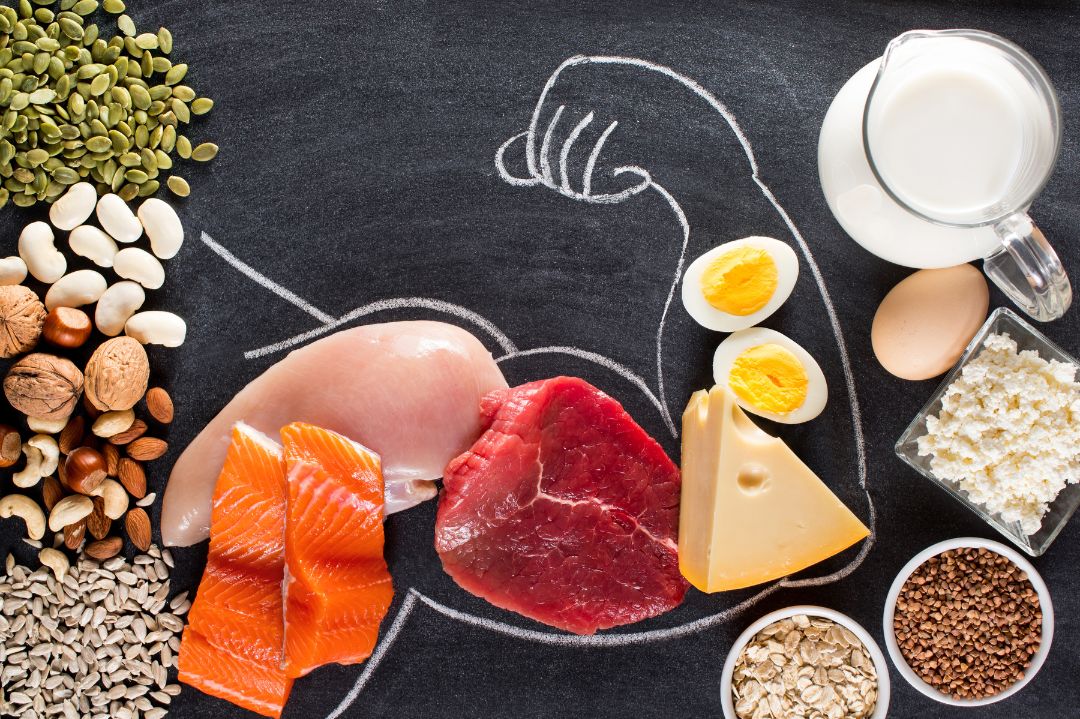High-protein diets are everywhere from fitness plans to weight loss programs but not everyone benefits from them the same way. The key to knowing whether a high-protein diet will actually work for you lies in your DNA-based protein metabolism. This refers to how your genetic makeup influences the way your body digests, absorbs, and utilizes protein. Some people thrive on high-protein meals, while others may face issues like fatigue, or poor recovery all depending on their genes.

How Your DNA Affects Protein Metabolism
Your body’s ability to digest, absorb, and utilize protein is influenced by genetic variations that impact key metabolic functions, including:
1. Protein Digestion and Absorption
- Some people digest and absorb protein efficiently, allowing them to maximize muscle recovery and metabolic benefits.
- Others may experience digestive discomfort, bloating, or even incomplete protein utilization, meaning excess protein may not be beneficial.
2. Muscle Growth and Recovery
- Certain genetic markers enhance muscle protein synthesis, allowing for faster muscle repair and growth after workouts.
- Others may struggle with slow recovery times, meaning a high-protein intake may not directly translate to better muscle development.
High-Protein Diets: Who Benefits the Most?
A high-protein diet can be highly beneficial for certain individuals, particularly:
- Athletes and Bodybuilders: To support muscle recovery and growth after intense workouts.
- Aging Adults: To preserve muscle mass and prevent sarcopenia.
- People with High Protein Efficiency Genes: If your genetics indicate efficient protein metabolism, a high-protein diet may enhance muscle development and metabolic health.
However, for others, excess protein intake can lead to metabolic imbalances. That is why it is important to know your genetic profile before drastically increasing protein consumption.
Signs That a High-Protein Diet May Not Be Right for You
- Chronic Fatigue: If protein digestion is slow, your body may not efficiently convert it into energy.
- Digestive Discomfort: Bloating, constipation, or gas could mean your body struggles to break down excess protein.
- Slow Recovery from Exercise: If muscle soreness lingers longer than expected, your body may not be efficiently using protein for muscle repair.
How to Adjust Your Protein Intake Based on Your DNA
Tailor your diet to your genetic protein metabolism:
- High Efficiency: Prioritize lean proteins, balance with healthy fats and fiber, and stay hydrated.
- Moderate Efficiency: Maintain a balanced diet, adjust protein intake to activity levels, and add plant-based proteins.
- Low Efficiency: Limit animal protein, focus on plant-based sources, and include fiber and healthy fats for digestion and energy.
Final Thoughts: Is a High-Protein Diet Right for You?
A high-protein diet is not the perfect fit for everyone, it depends on your body’s ability to process protein efficiently.
Genetic testing removes the guesswork, helping you discover whether high-protein diets will truly benefit your body or if a balanced approach is better.
By aligning your diet with your DNA, you can:
- Optimize your muscle recovery and metabolism
- Support long-term metabolic health
- Make informed dietary decisions that actually work for you
Understanding your genetic response to protein metabolism is the key to customizing your nutrition plan for better health and performance.
Are you ready to unlock the power of DNA-based diet planning?

